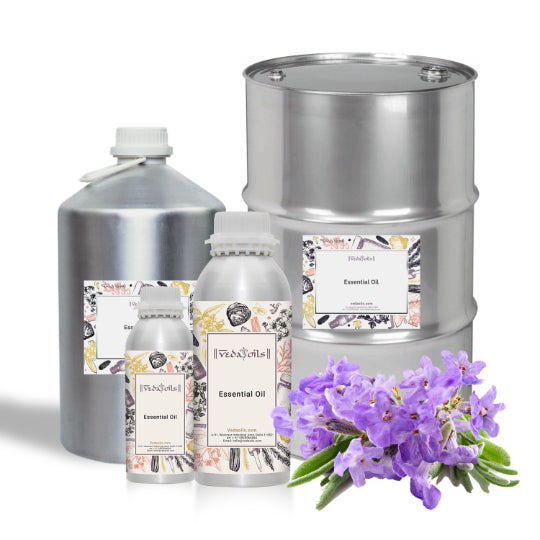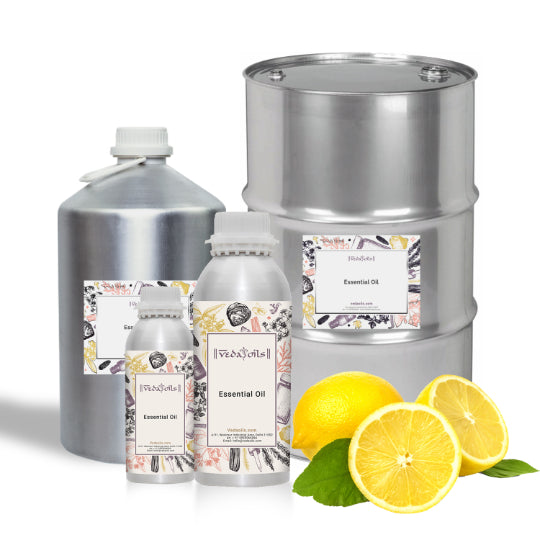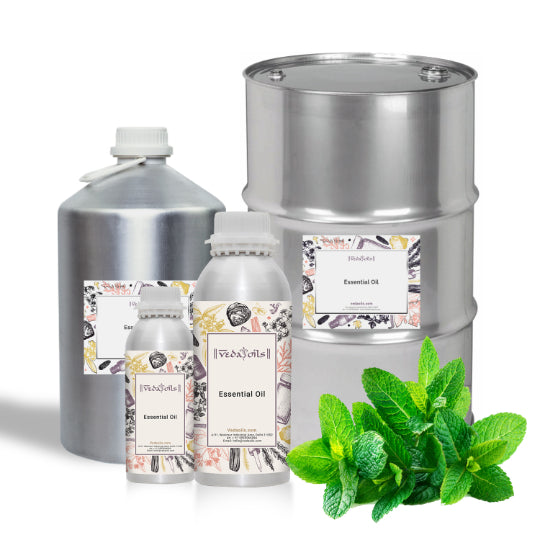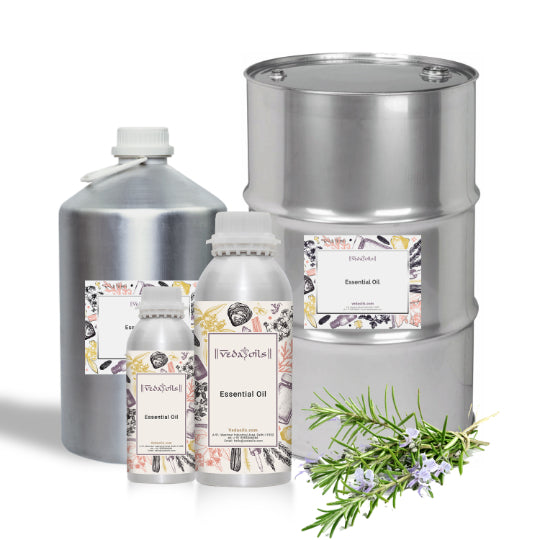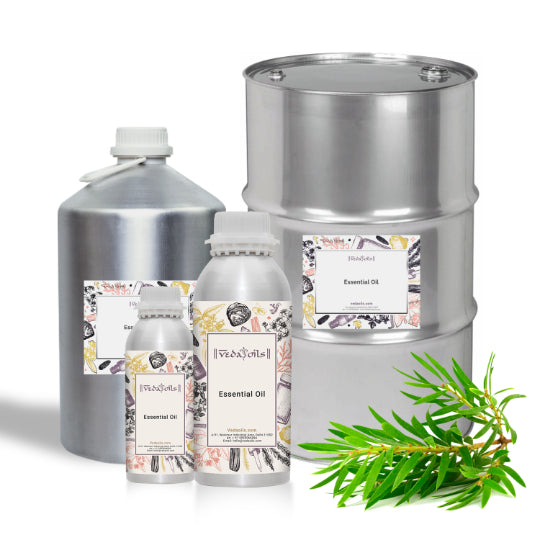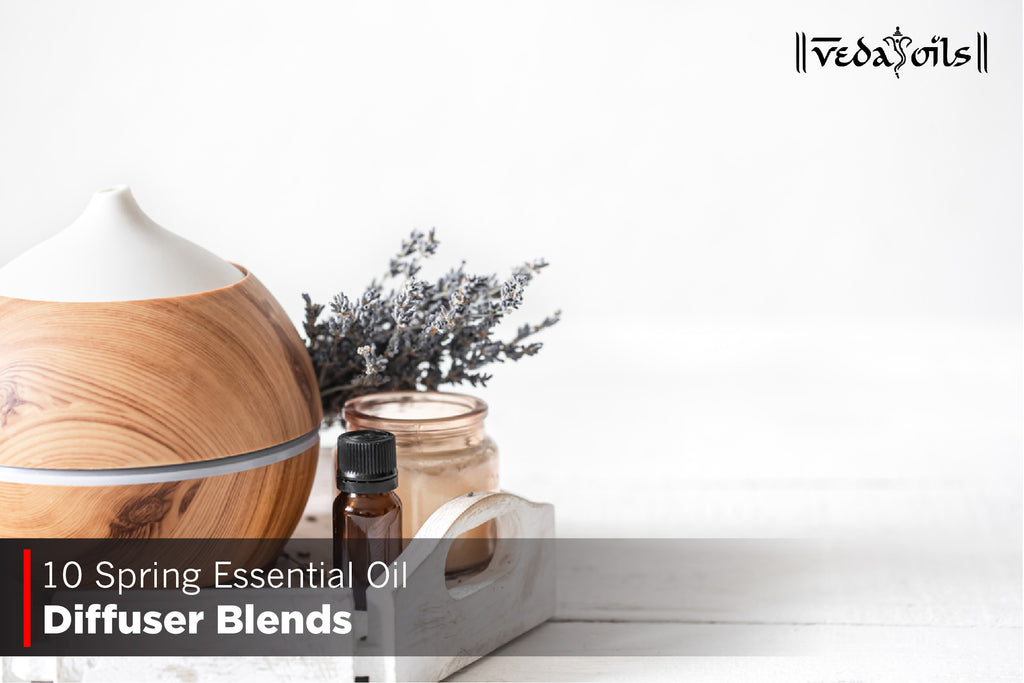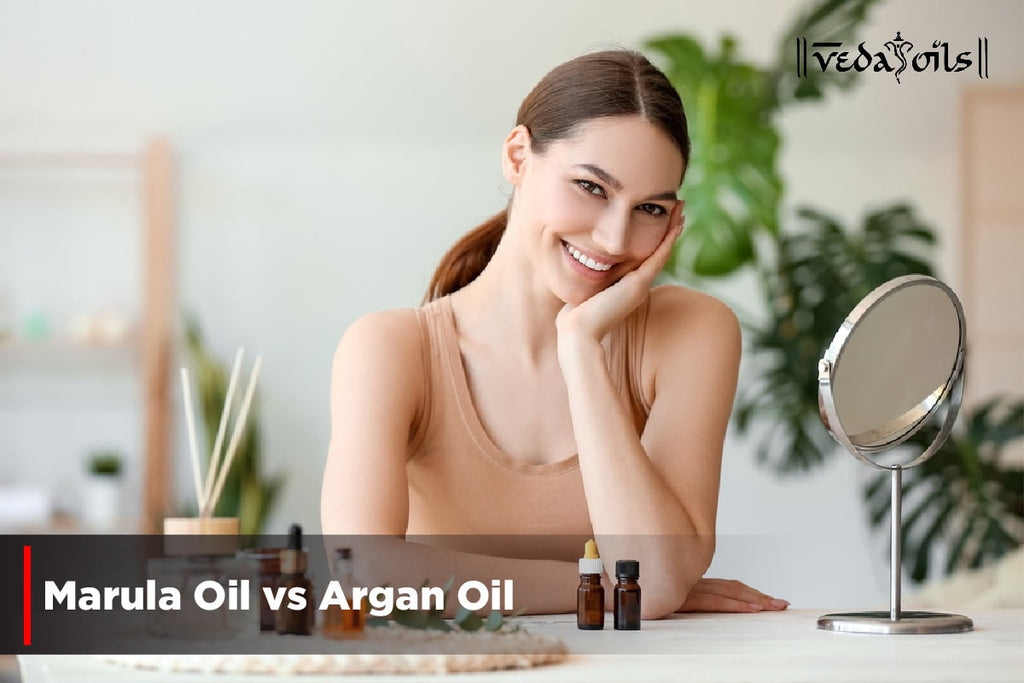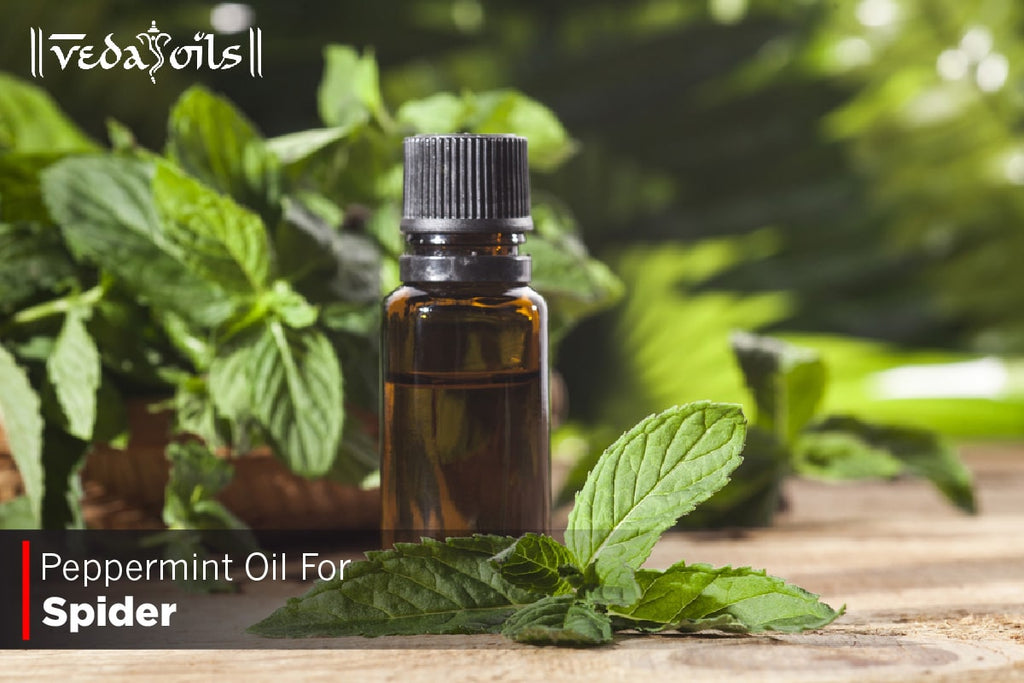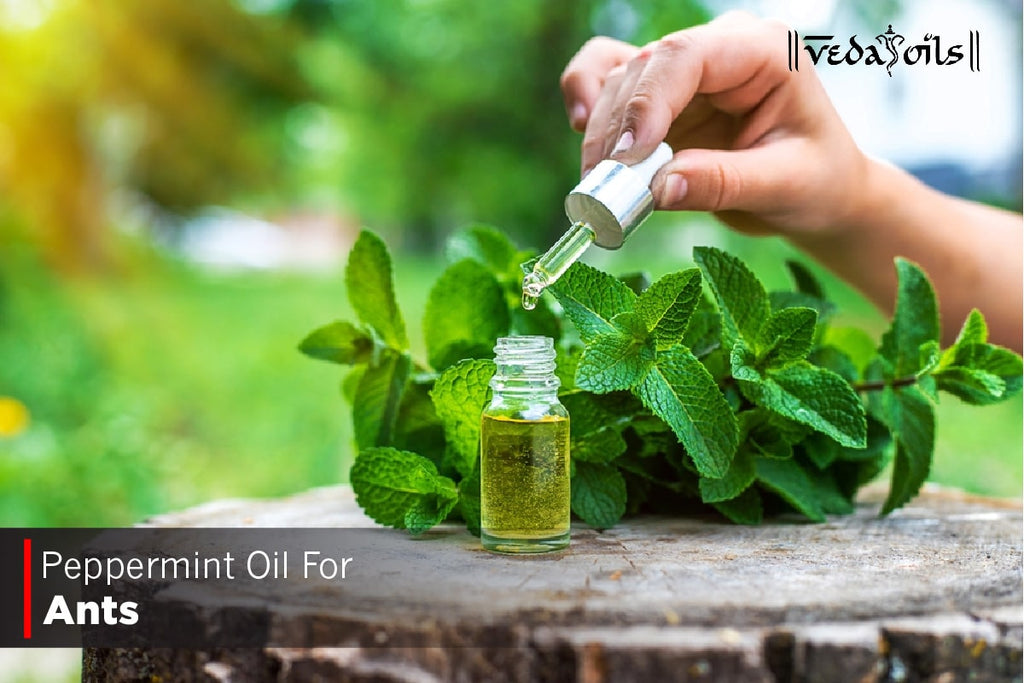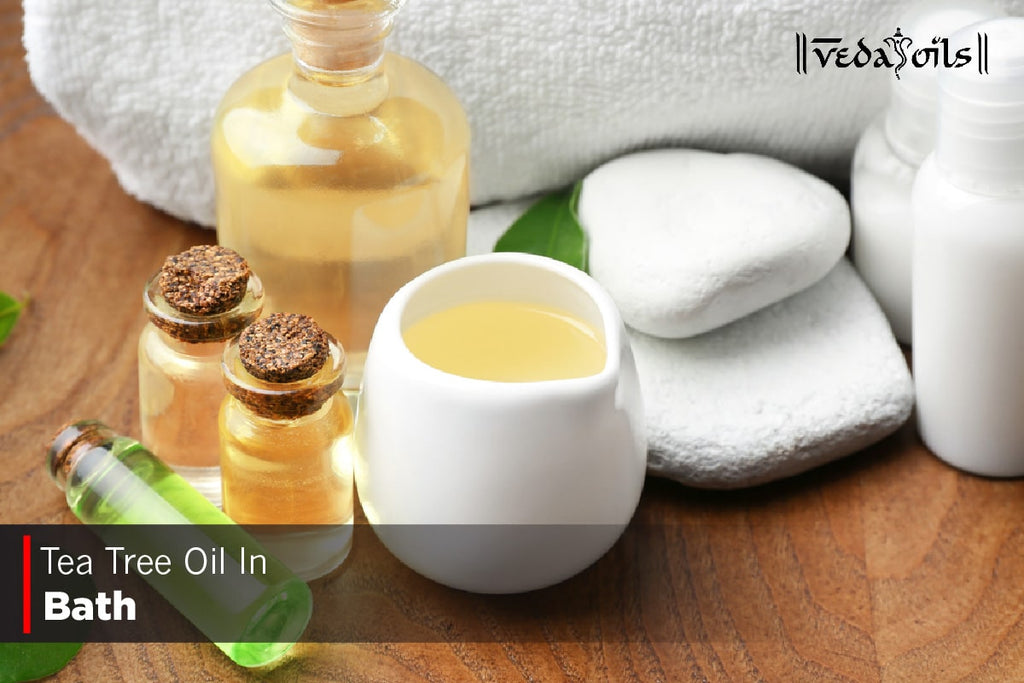
Topic of Contents
- What is the History of Peppermint Essential Oil
- What are the physical characteristics of Peppermint Plant?
- How can Peppermint Essential Oil benefit you?
- How does Peppermint Essential Oil smell like?
- What are the chemical ingredients present in Peppermint Essential Oil?
- What are the Properties of Menthol?
- What are the Properties of Menthone ?
- What are the beneficial effects of Peppermint Essential Oil?
- How can you use Peppermint Essential Oil in aromatherapy?
- How can you use Peppermint Essential Oil as a cleaning agent?
- What are the cosmetic benefits of Peppermint Essential Oil?
- What are the benefits of Peppermint Essential Oil in Aromatherapy?
- What are the medicinal benefits of Peppermint Essential Oil?
- How is good quality Peppermint Essential Oil Cultivated?
- How is Peppermint Oil essential extracted?
- How to retain stability of Peppermint Essential Oil?
- How to use Peppermint Essential Oil topically?
- How to use Peppermint Essential Oil in baths?
- Using Peppermint Essential Oil as a Cleaning Agent
- Different Varieties of Peppermint Essential Oil
- Benefits of Peppermint Japanese
- Benefits of Peppermint Supreme
- Contradictions for using Peppermint Essential Oil
- Peppermint Oil Overdose
Peppermint essential oil is among the most multipurpose oils that are beneficial to your overall health in multiple ways. Read on to know more about the various benefits and uses of this oil and how it is used in cosmetic, health, and food industries globally.
To Summarise
- Peppermint is a plant from the genus Mint. Various other plants belong to this genus including Water Mint, Forest Mint, and Spearmint. Peppermint is thought to be a natural hybrid of Spearmint and Water Mint plants.
- Peppermint essential oil is a very versatile oil as it has many therapeutic benefits.
- The main active ingredients present in Peppermint essential oil are Menthone and Menthol. These ingredients help in preventing the growth of disease-causing bacteria and reducing pain respectively. Menthol also helps in energizing the body.
- You can use peppermint essential oil in a wide variety of ways. These include cosmetics, baths, and aromatherapy and as a cleansing agent.
- Peppermint essential oil has stimulant properties, due to which it may interfere with your sleep. Hence, using the oil in excess can cause potential severe adverse effects.
What is the history of Peppermint essential oil?
Peppermint is the common name of the Mentha piperita plant. It is an herb that can live for several years (perennial herb). It is a native of the Mediterranean area but is also grown in the United States, Japan, Great Britain, and Italy.
The Peppermint essential oil is derived from the Mentha piperita herb.
You can trace back the benefits and uses of this plant and oil to the practices of Japanese and Chinese folk medicine. It has also been used in the times of ancient Egyptians when dried leaves of peppermint were placed in the tombs in the pyramids.
There has been some confusion about the history of the cultivation of this plant as the term Peppermint is being used interchangeably with Spearmint and Mint. But, old textual references prove that this herb is being used as a medicinal herb and for cooking purposes since 1500 B.C.
There is also a mention of peppermint in Greek mythology. The story of the nymph “Minthe” or “Mentha” refers to it; the nymph gets converted into this herb and releases a sweet-smelling, lingering, and powerful smell every time anyone steps on her.
There are hundreds of plant species that belong to the genus “Mint” and peppermint herb is one of those plants. Various other herbs including Water Mint, Forest Mint, and Spearmint belong to the genus Mint. It is thought that Peppermint is a hybrid of Spearmint and Water Mint that occurs naturally.
What are the physical characteristics of the peppermint plant?
Its leaves are serrated (the edges are saw-like or jagged) and flowers are conical in shape. The color of the flowers can range from mauve to light pink.
How can peppermint essential oil benefit you?
Peppermint essential oil is among the most multipurpose oils that are used worldwide similar to lavender essential oil. It has properties to kill microbes due to which it is used in various oral and skin issues. It is also beneficial in promoting the health of your overall body and mind.
How does peppermint essential oil smell like?
The smell of Peppermint is sharp and fresh and can be compared to that of Menthol. It is versatile oil that finds its use internationally in various industries such as health, culinary, and cosmetics.
What are the chemical ingredients present in peppermint essential oil?
The major chemical ingredients present in Peppermint essential oil include Menthol, 1, 8- Cineole, and Menthone, Pinene, Limonene, Isovalerate, Menthyl acetate, and other ingredients. The most vital or active of these ingredients are Menthone and Menthol.
What are the properties of Menthol?
Menthol has analgesic (that reduces pain) properties due to which it is effective in reducing various kinds of pain and inflammation such as muscle aches and headaches.
What are the properties of Menthone?
Menthone has both analgesic and antiseptic (that kill germs) properties.
The rejuvenating and revitalizing properties of these ingredients give peppermint oil it’s stimulating and energizing effects.
What are the beneficial effects of Peppermint essential oil?
Peppermint essential oil has a wide variety of beneficial effects on your overall health.
Peppermint essential oil is used for various medicinal purposes. It helps in removing harmful bacteria, relieving gas and muscle spasms, and soothing and disinfecting inflamed skin.
When used as a massage oil, it helps in releasing stress and muscle tension. When you rub peppermint essential oil into your feet after diluting it with a carrier oil it works effectively to reduce fever naturally.
Peppermint essential oil has astringent properties. Hence, on topical application, it helps in closing the skin pores and tightening the skin.
It also acts as an efficient anaesthetic (a numbing agent) due to the warming and cooling sensations it produces when applied to the skin. Therefore, it numbs the skin and reduces the sensation of pain. It also calms inflammation and redness of the skin.
Traditionally, people have used peppermint essential oil as a cooling rub on the chest to relieve chest congestion.
Moreover, when you use it on the skin after diluting it with a carrier oil (for example coconut oil) it can help in promoting a healthy and safe renewal of the skin. Hence, it can provide relief from irritations of the skin such as sunburns.
When you use it in shampoos, it helps in stimulating the scalp and removing dandruff.
How can you use peppermint essential in aromatherapy?
Peppermint essential oil also finds its use in aromatherapy. Due to its expectorant properties, it helps in clearing the nasal passages. This relieves nasal congestion and encourages easy breathing.
Peppermint essential oil also helps in stimulating circulation and balancing the levels of hormones. It also reduces the feelings of tension and irritability, promotes energy, and enhances mental focus.
Due to its analgesic properties, when you smell the peppermint essential oil, it helps in relieving headaches.
It has digestive properties that help in reducing the appetite; thereby, promoting the feeling of the fullness of the stomach.
When you dilute an inhale or rub a small quantity of peppermint essential oil behind your ear, it can help in reducing the feelings of nausea.
How can you use peppermint essential oil as a cleaning ingredient?
Peppermint essential oil has anti-microbial (helps in killing germs) properties. This makes it an effective cleaning solvent, which you can use to deodorise and sanitise your environment.
When used as a cleaning solvent it leaves behind a cheerful and fresh smell. It not only helps in disinfecting surfaces but also helps in removing insects from your home. Hence, it functions as an efficient insect repellant.
As already mentioned, peppermint essential oil is a multipurpose oil that has many medicinal and therapeutic properties. Its multiple benefits and various kinds of activities that it shows are highlighted below.
What are the cosmetic benefits of peppermint essential oil?
When applied topically peppermint essential oil acts as an:
- Astringent (constricting agent)
- Antiseptic (kills germs)
- Cordial (warm)
- Nervine (calms the nerves)
- Sudorific (causes sweating)
What are the benefits of peppermint essential oil in aromatherapy?
When used in aromatherapy, peppermint essential oil acts as an:
- Analgesic (relieves pain)
- Cordial (warm)
- Decongestant (relieves congestion)
- Digestive (relieves digestive problems)
- Emmenagogue (a substance that increases the flow of menstrual blood)
- Expectorant (promotes the secretion of mucus by the lungs and other air passages)
- Nervine (calms the nerves)
- Stimulant
What are the medicinal benefits of peppermint essential oil?
As a medicinal agent, peppermint essential oil acts as an:
- Analgesic
- Anaesthetic (numbs the area)
- Anti-galactagogue (helps to initiate and maintain adequate production of milk in lactating women)
- Anti-phlogistic (helps to relieve inflammation or fever)
- Antispasmodic (helps to relieve spasms)
- Astringent
- Carminative (helps to relieve gas)
- Cholagogue (helps to promote the purging of bile from your system)
- Cordial
- Digestive
- Decongestant
- Emmenagogue
- Expectorant
- Sudorific
- Febrifuge (helps to reduce fever)
- Nervine
- Stimulant
- Vermifuge (helps in expelling worms)
- Vasoconstrictor (constricts the walls of the blood vessels)
How is quality peppermint essential oil cultivated?
Peppermint plant needs large quantities of water to grow. Due to this, it flourishes in temperate or cool areas, which are wet. These include areas near the streams or areas that have lots of rainfall, though the cultivation of peppermint also requires proper drainage.
To maintain an ideal balance between different ingredients in the peppermint plant while it is growing, the best weather conditions in which it should be grown are hot or warm days and cool nights.
While growing in warmer climates, the plant of peppermint may grow both in full sun or partial shade.
When the plant is harvested in full sun, the oil content of peppermint is higher. But, if it is grown in hot conditions (especially if the nights are warm), ingredients such as Menthofuran that are highly toxic may form in the peppermint plant.
Harvesting of the peppermint essential oil begins on a sunny and dry day when there is no dew present on the plant. Conventional hay mowers are used to cut down the whole plant neatly.
After the cutting of the peppermint plant, it is left for wilting in the field itself. Then the plant is sliced into pieces using a forage harvester and transferred to a mobile distillation tub, trailer or pot. The latter is used to transport the plant to the place for distillation.
How is peppermint essential oil extracted?
The oils of the peppermint plant lie in the cells that are present on the lower surface of its leaves. These oils are extracted by the steam distillation process of the partially dried or fresh leaves of the plant.
How to retain stability of Peppermint Essential Oil?
Peppermint essential oil retains its stability and has a long shelf life when you store it in a dry and cool place. The bottle with the oil should be kept away from the rays of direct sunlight and its cap should be tightly closed.
Peppermint essential oil has multiple uses and you can use it in a wide variety of ways.
How can you use peppermint essential oil in aromatherapy?
When you place the oil in a diffuser, it helps in enhancing relaxation, memory, energy, wakefulness, and concentration.
How can you use peppermint essential oil topically?
You can use mix the oil in moisturisers and use it on your skin. Its calming and cooling effects can help in relieving the soreness of muscles. It also helps in reducing skin itchiness. You can also use it to relieve sunburns.
How can you use peppermint essential oil in baths?
When you use peppermint essential oil after diluting it in a bath or massage blend, it helps in relieving mental fatigue, coughs, and back pain. It also helps in boosting blood circulation and relieving tiredness of feet.
Taking a bath in water containing peppermint essential oil helps in relieving muscular cramps, spasms, and pain and calming itchy and inflamed skin.
How can you use peppermint essential oil as a cleaning agent?
Due to its anti-fungal and anti-microbial properties, you can add some drops of this oil to home cleaners. You can then spray these cleaners particularly on those areas of the house that need antibacterial activity, such as kitchens and bathrooms.
You can also use peppermint essential oil as a natural and effective repellant for house insects and pests.
What are the different varieties of peppermint essential oil?
The following are the different varieties of peppermint essential oil:
- Peppermint Japanese: It is also known by the name Cornmint. Its botanical name is Mentha arvensis. It is found in the Indian subcontinent.
- Peppermint Supreme: It is also known by the name Peppermint English, Black Mitcham, Candy Mint, and Mitcham Peppermint. Its botanical name is Mentha piperita. It is found in the Indian subcontinent and England (particularly in the area of Micham in Surrey).
What are the benefits of Peppermint Japanese?
It is thought to have a double of cooling and warming. It helps in relieving itching and inflammation of the skin and sunburn. It also relieves muscle aches. It helps in softening the skin. It helps in the treatment of oily skin and hair.
What are the benefits of Peppermint Supreme?
It helps in relieving headaches and mild coughing. It also helps in improving the focus and concentration of mind and memory.
What are the contraindications for using peppermint essential oil?
According to the guidelines of NAHA, VedaOils does not advise the ingestion of any of the essential oils.
When used in lower dilutions, peppermint essential oil is usually non-toxic. Hence, it does not irritate the skin. But the Menthol present in this oil may irritate your mucous membranes and skin.
You should never use peppermint essential oil around your inner ears, eyes, and any other sensitive areas of the body. Moreover, since peppermint essential oil is a stimulant, using it daily can interfere with your sleep.
What are the symptoms of peppermint essential oil overdose?
The following are the various symptoms that can indicate an overdose of peppermint essential oil:
- Rashes on the skin
- Urinary problems
- Diarrhea
- Abdominal pain
- Vomiting
- Nausea
- Rapid or slow breathing
- Depression
- Convulsions
- Unconsciousness in severe cases
Should you consult a doctor before making use of peppermint essential oil?
It is important to discuss with a doctor before making use of peppermint essential oil or any other essential oil for that matter for medicinal purposes.
Pregnant and lactating women should take special care and should not use the oil without consulting a doctor.
You should always store the oil in a place that children can’t access easily, especially children younger than seven years.
You May Also Like:
- How to Make DIY Face Wash at Home
- How to Make DIY Bath Bomb at Home
- Make DIY Waterproof Eyeliner at Home
- How to Make DIY Homemade Facial Serum
- Make DIY Makeup Remover Wipes at Home


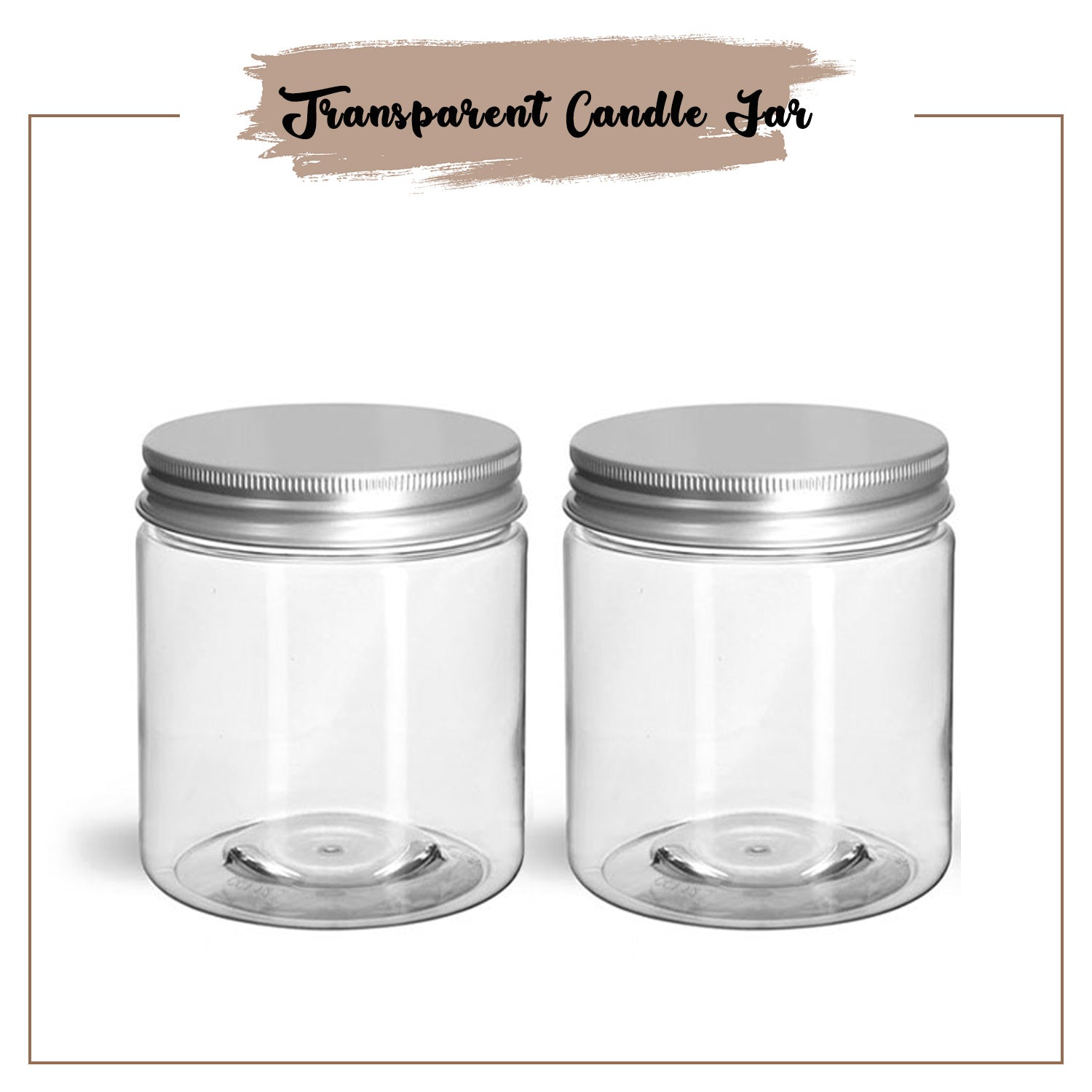

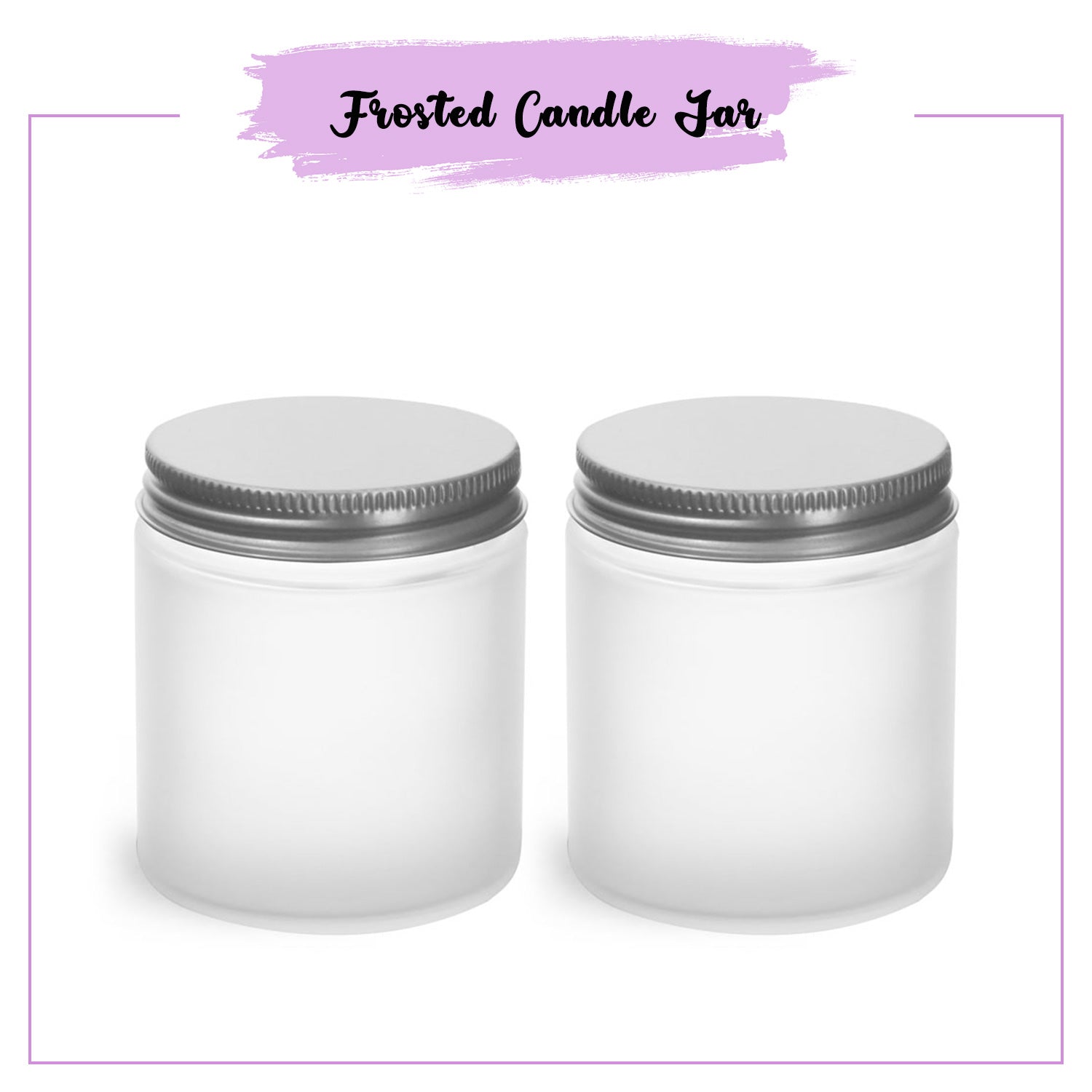

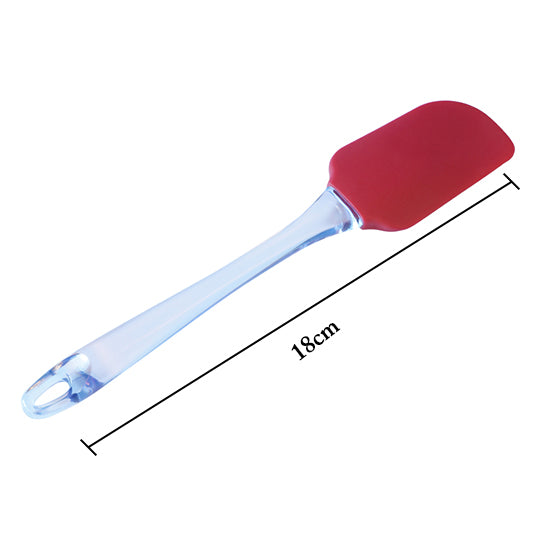

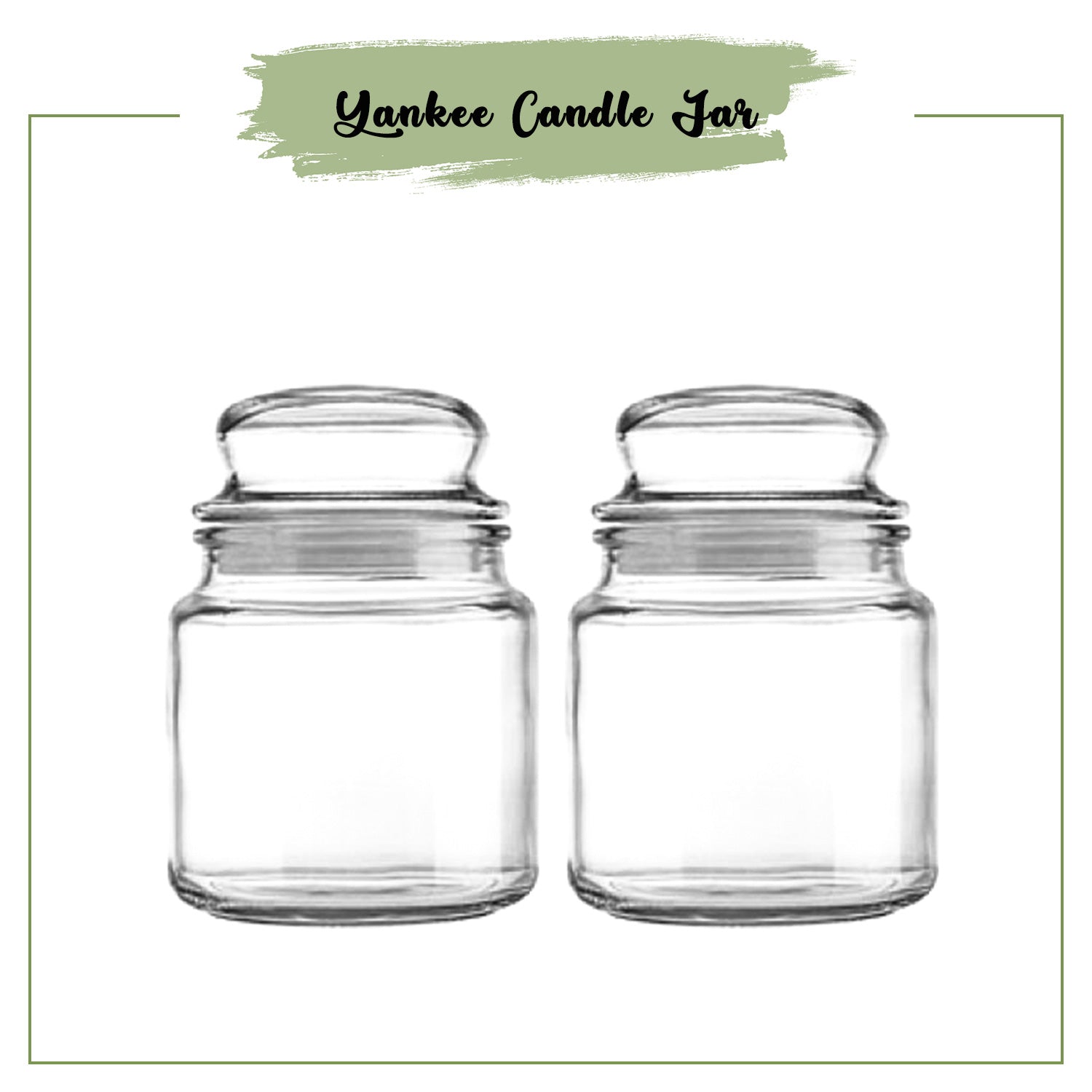

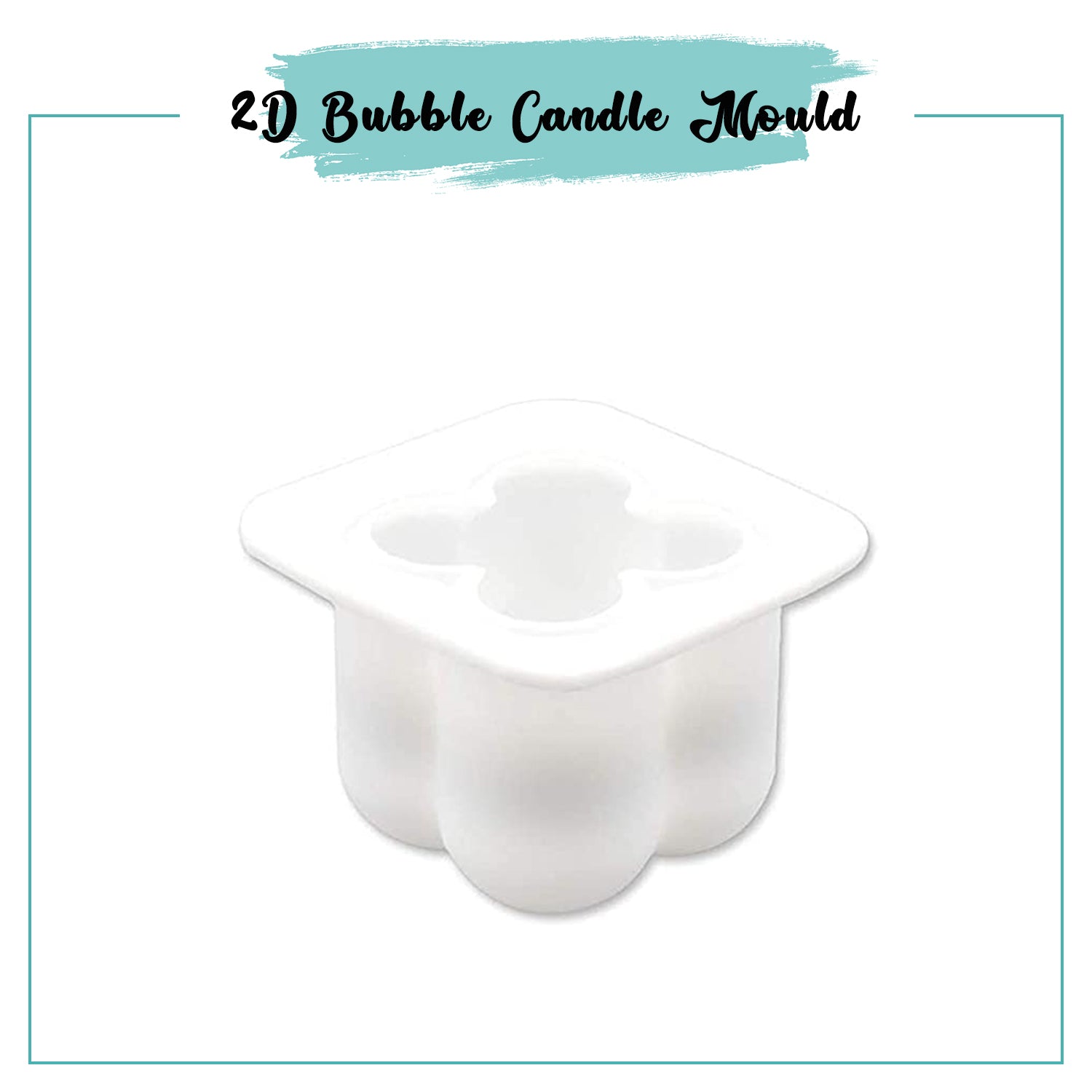


 Sign in
Sign in Register now
Register now My Reward Points
My Reward Points

